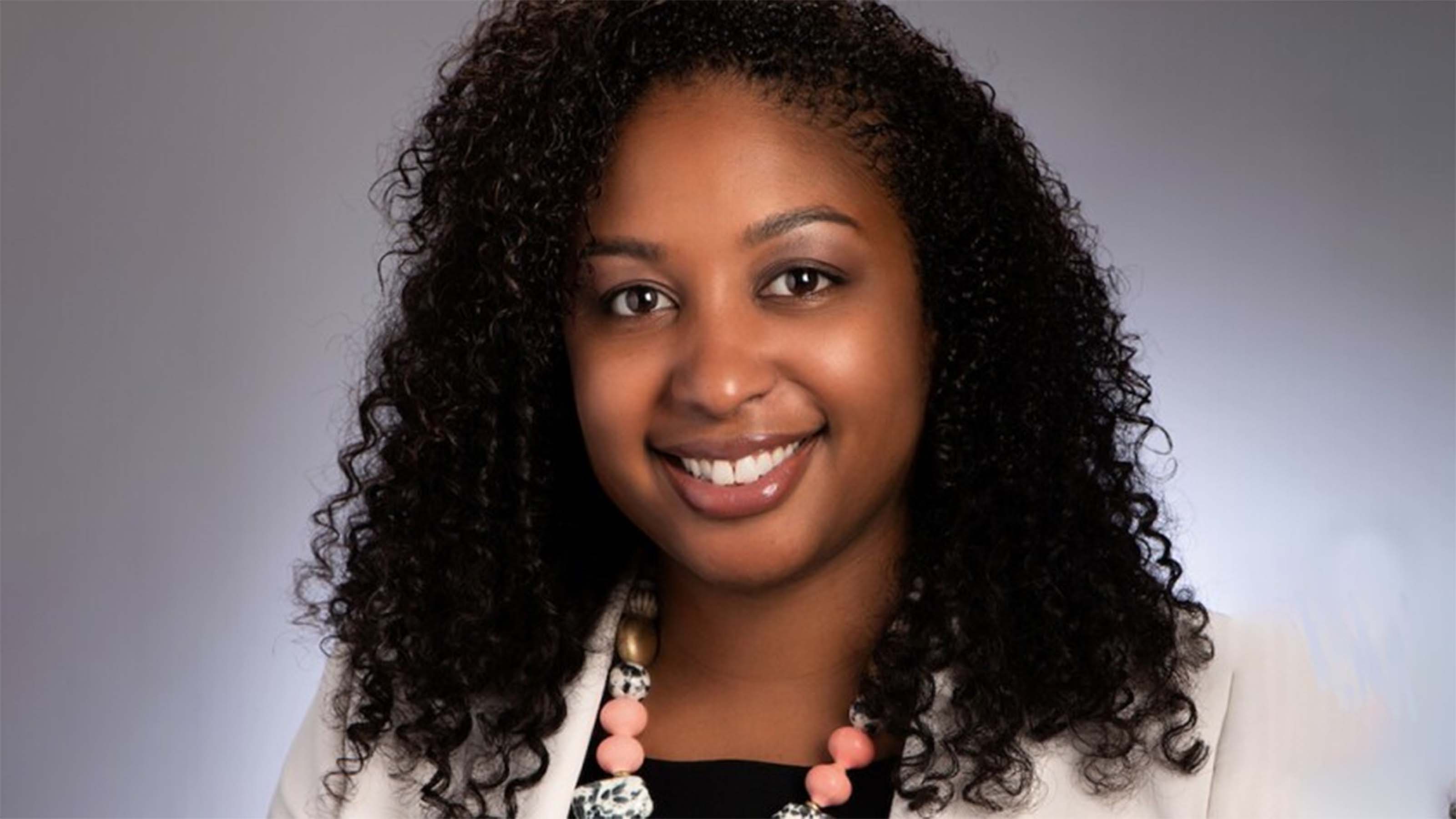Undervalued Stocks Worth a Look
Kiplinger's senior associate editor John Waggoner returns to discuss top mutual fund managers' favorite undervalued stocks with podcast hosts Sandy Block and Ryan Ermey. The pair also delves into sports gambling (and make a few prop bets) just in time for the Super Bowl. Sandy and Ryan wrap things up with a new edition of "Deal or No Deal?" aimed at online shoppers.

Profit and prosper with the best of Kiplinger's advice on investing, taxes, retirement, personal finance and much more. Delivered daily. Enter your email in the box and click Sign Me Up.
You are now subscribed
Your newsletter sign-up was successful
Want to add more newsletters?

Delivered daily
Kiplinger Today
Profit and prosper with the best of Kiplinger's advice on investing, taxes, retirement, personal finance and much more delivered daily. Smart money moves start here.

Sent five days a week
Kiplinger A Step Ahead
Get practical help to make better financial decisions in your everyday life, from spending to savings on top deals.

Delivered daily
Kiplinger Closing Bell
Get today's biggest financial and investing headlines delivered to your inbox every day the U.S. stock market is open.

Sent twice a week
Kiplinger Adviser Intel
Financial pros across the country share best practices and fresh tactics to preserve and grow your wealth.

Delivered weekly
Kiplinger Tax Tips
Trim your federal and state tax bills with practical tax-planning and tax-cutting strategies.

Sent twice a week
Kiplinger Retirement Tips
Your twice-a-week guide to planning and enjoying a financially secure and richly rewarding retirement

Sent bimonthly.
Kiplinger Adviser Angle
Insights for advisers, wealth managers and other financial professionals.

Sent twice a week
Kiplinger Investing Weekly
Your twice-a-week roundup of promising stocks, funds, companies and industries you should consider, ones you should avoid, and why.

Sent weekly for six weeks
Kiplinger Invest for Retirement
Your step-by-step six-part series on how to invest for retirement, from devising a successful strategy to exactly which investments to choose.
Ryan: We all like to buy things when they go on sale. And here at Kiplinger's that goes doubly for stocks. Our investing expert John Waggoner interviewed managers of top mutual funds to find great stocks trading at bargain prices. You'll find out which ones they picked in our main segment. On today's show, Sandy and I discuss sports gambling just in time for you to make your Super Bowl bets and wrap up with a shopping addition of deal or no deal. That's all ahead on this episode of Your Money's Worth, stick around.
Episode Length: 00:28:57 | Links and resources mentioned in this episode
SUBSCRIBE:
From just $107.88 $24.99 for Kiplinger Personal Finance
Become a smarter, better informed investor. Subscribe from just $107.88 $24.99, plus get up to 4 Special Issues

Sign up for Kiplinger’s Free Newsletters
Profit and prosper with the best of expert advice on investing, taxes, retirement, personal finance and more - straight to your e-mail.
Profit and prosper with the best of expert advice - straight to your e-mail.
Ryan: Welcome to Your Money's Worth. I'm Kiplinger staff writer Ryan Ermey joined as always by senior editor Sandy Block. And Sandy, this is the last show that we are recording before Super Bowl Sunday. And I don't know about you, but for Super Bowl Sunday for me it means beers and wings and lots of gambling on sports.
Sandy: Well, that's one way to stay in the game Ryan.
Ryan: Especially if you don't like either of the teams.
Sandy: Exactly, no Eagles sorry.
Ryan: Yeah, sorry. Yeah, I'm sorry too. So we thought it would be a good opportunity to talk about sports gambling because the Supreme Court in the past year has struck down the wall that made gambling on sports illegal or largely illegal outside of Nevada casinos since eight states plus D.C. have legalized gambling on sports and about 20 more are expected to examine legislation on sports gambling in the coming months.
Ryan: So the upshot is you can now gamble legally on sports within state lines, mostly at brick and mortar casinos in the states where it's legal. And that's generally good for people who like to gamble. You get all the guarantees I should say of regulated gambling. You get stable odds and guaranteed payouts. And mostly for my friends who use bookies in New Jersey, you don't get guys come into your house to throw you down the stairs.
Sandy: Well, and It's good for the states too. And that's why this is catching on so fast because states see an opportunity here to make a lot of money. A lot of them I think are taking existing casinos and adding this to them. And sports betting brings in a whole bunch of customers who may not have particularly been interested in betting on the horses.
Ryan: Right.
Sandy: But they are going to come and bet on the Super Bowl.
Ryan: So even if you live in a state that doesn't have legal gambling, I mean, people still have bookies or they use websites to gamble. I have friends who use some sort of shady bitcoin operation. And of course people do their normal, their pools the kind of stuff that is also popular during March Madness, which can be big, big money. And what does that mean for taxes?
Sandy: Well, it means you have to pay them. And particularly in the states, in the casinos, you're not going to be able to avoid them. Maybe when your bracket and the IRS never finds out about it. But if you win big in a state casino betting on the Super Bowl or March Madness or anything else, there's a very good chance that the casino will automatically withhold a part of your winnings for taxes. And even if they don't, you're still supposed to pay them. You're supposed to pay taxes on any gambling winnings. Now you can deduct gambling losses from your taxes, but you have to itemize and hardly anybody's going to do that going forward. And the deduction can't be larger than your total winnings for a given year. So a lot of people aren't going to be able to deduct. But it is good idea to keep these records because you are supposed to pay taxes on your winnings.
Ryan: So I thought I would run a couple of prop bets by. This is the way that I like to gamble on the Super Bowl. And I thought that we would do a couple here that are for people who don't necessarily even care that much about the game itself, but want to as my friends and I say, get a little action on the side. And so the first one, I mean, first of all, you can bet on anything including the coin toss, but that's no fun. So we have Gladys knight, you can bet over under a minute, 45 on the anthem. Now, if you bet the over your odds are -140, which means that you have to risk $140 to win $100, whereas you'll get even money on the under. What do you think?
Sandy: Is this with or without pips?
Ryan: I don't know if the pips are involved. I think she might be doing it solo.
Sandy: I want to give Gladys all the time that she needs. So I'm going over.
Ryan: All right, I'll take the under. We'll see how this goes. We'll bet 10 imaginary dollars and all of these. We have Gatorade color. That's always a popular one. You can get the shortest odds are lime green or yellow. But you can also have orange, blue, red, clear or/water or purple at +1000. So you can bet 120,000. I kind of like the odds for orange +300.
Sandy: Really? I always think of Gatorade. I mean all the races I run, it's always lime green. So I'm going green.
Ryan: All right, +225 for you then. So 100 to win 225. Now there's all kinds of bets that you can have on the commercials. The one that stands out to me is Doritos or Pringles for which will appear first. This is me giving out winners here folks. Doritos at -145. You have to give up a little juice to win your $100. But I don't know, I always remember the Doritos ads. I always feel like they come on early and I don't even remember a single Pringle Super Bowl ad.
Sandy: No, but maybe Doritos wants to wait until they've really got your eyeballs and you're not out in the kitchen making the food. So I'm betting, I'm going with Pringles coming in early.
Ryan: All right. Why not? You get favorable odds their +105. And then for those of us who will be watching the halftime show, Maroon 5, will be performing. And there's a number of bets that you can take there, which include what color shirt Adam Levine will be wearing. You can have black for -180 or any other color +140. I mean, does he always wear black?
Sandy: I have no idea, but I'm thinking maybe lime green to match the Gatorade.
Ryan: Hey, that's a value bet right there. And the other one I like is first song performed. You can have One More Night at +300. Makes me wonder +500, Sugar at +550, Animals at +600. I mean there's any number of ones, but folks look at this one, This Love their first big hit at +1500. A phenomenal value if you ask me.
Sandy: Well and that seems like ... I usually turn on the puppy bowl at this point, so I'm not really qualified to participate in this part of the game, but if that's their first hit, I would go along with that because a lot of times they want to come out and bring it. Remind everybody, yeah, we used to be good.
Ryan: Well, listen all of these odds provided to us by Bovada who maybe they have odds on the Puppy Bowl. I don't know. You might be able to take the German shepherd +400 or something. But whether they're gambling on the Puppy Bowl or the Super Bowl or legally or illegally, they got to pay taxes on it. And like we said, any loss that you incur, you can use only to offset your income to the extent that you are a winner. And I almost never am.
Sandy: That's right. And don't forget, don't bet money that you can't afford to lose even if you are convinced that Adam Levine is going to wear black for the first song.
Ryan: That's right. Gamble responsibly folks. When we return John Waggoner, gives stock picks from top mutual fund managers don't go anywhere.
Ryan: All right, and we're back and we're here with associates, senior editor, John Wagner. Thanks for coming on John.
John: Thanks for having me.
Ryan: And yeah, we're doing something that I'm kind of delighted because we're picking stocks, but more importantly, I'm not picking stocks. And you're not really picking stocks either as much as for our upcoming mutual fund guide that's coming out in the March issue of the magazine. You got a chance to talk to some prominent mutual fund managers about some of their favorite stocks.
John: Absolutely. And at the time when I was writing at the stock market, as you may recall was falling into a deep abyss. And things were becoming increasingly cheaper. And so I called a lot of value oriented managers to see what they were finding that was particularly cheap these days.
Ryan: And by value we mean people who invest in undervalued or sort of beaten down stocks.
John: Right. Their ideas, they buy unloved stocks and wait until they come to a regular reasonable value.
Ryan: So this first one on the list is from the Kiplinger dividend 15, which is the list of our favorite dividend stocks. And that is Blackstone.
John: What the company does is it's an alternative asset manager. And what's that? Well, that's something aside from stocks and bonds, right? So they have real estate, they have private equity, they have hedge funds and weird bond strategies. And they have quite a bit of money a $457 billion in assets under management and alternative investments have been kind of all the rage in the last year or two as the stock market has climbed higher and people have looked for different things to invest in. So it's selling at 11 times forward earnings. So...
Ryan: Which is cheap?
John: Which is cheap? And the difference between forward and backwards earning, backwards earnings is looking in the rear view mirror forward earnings is fiction, it's what Wall Street...
Ryan: It's what Wall Street expects.
John: It's what Wall Street expects. And as we all know, that changes. But nevertheless, 11 times forward earnings is cheap particularly for an asset manager.
Ryan: And so we get this recommendation thanks to our friend at Charles Bobrinskoy. I'm hoping I'm saying that correctly from the Ariel Focus Fund. What's the sort of thesis going forward for the stock?
John: Well, the thesis is that as the stock market climbs and people look to kind of make their portfolio a little more diversified, they're going to dip more and more into these alternative assets. And the other thing is that these things are all more costly. The big rush and the mutual fund industry is to slash costs, which is great for investors. It's lousy for fund managers. But this is one of those groups of asset managers that can actually keep a reasonable profit margin at these times.
Sandy: So John, another one on your list, I definitely have a question about it certainly is an unloved stock because it's American Airlines. So anyone who has flown in economy would say, yes, that is an unloved stock. But more importantly airlines have been warning investors that this prolonged government shutdown, which is still in effect as we record this could dampen their earnings because they make a lot of money off of government people flying around and they're not doing that now. We're hearing more and more about long security lines. So that's a concern. So what's the story behind America?
John: Well, so we got this from Bill Nygren from Oakmark and this was before the shutdown and not surprisingly, this stock has become even more of a bargain because people are understandably getting a little leery about flying at a time when security is working without pay. And so the stock has gone down. It's now at a 5.67 P, which is just dead cheap and its dividend yield is not great it's about 1.26%. What it has going forward is that the stock for a long time, it's been priced with oil at about $70 a barrel. And if you've watched oil lately it's around 50, and if you think that American is going to refund money to all those people who bought when oil was 70. Yeah, that's not going to happen. Right. So...
Ryan: Or indeed pass the savings along to you.
John: Precisely. Yeah.
Sandy: Bigger seats, I don't think so.
John: No, no leg room for you. Yeah. So that's the thesis with American Airlines.
Sandy: But did Warren Buffett once say that an airline was a terrible investment, have things changed, are airlines better investments than they used to be?
John: Well, I think if someone is smart as Warren Buffet can't figure out airline pricing, I don't think really anyone can, it always seems kind of arbitrary and Buffet always had that great image of the market as being this guy who's either terribly depressed or just overly crazed. And if you ever shop for airline seats sometimes you get this real bargain and sometimes across half a million dollars to fly to Chicago. But they do seem to be getting healthier margins and they have been a little more rational in their pricing. And so I think once the shutdown ends they should be able to make up for some of their lost time.
Ryan: And just for reference folks, the forward price to earnings ratio, the average for the S&P 500 is right around 15 and a half. So anything trading well under that is what a lot of value investors would consider a bargain. So John, the next stock that we have on the list here comes to us from Ian Sexsmith at Parnassus. And that's a stock that's been absolutely clobbered, which is FedEx.
John: Yeah. Which is unusual because they've got no bounce. A lot of times you think about stupid stock tricks and one of them is the carriers tend to do really well in the months leading up to Christmas.
Ryan: Sure.
John: Because of the rise of Amazon and everybody getting their packages delivered. Yeah. That didn't happen this time. And they were also hit by the high price of oil because obviously they've got...
Ryan: Fuel there trucks.
John: Yeah, fuel their trucks and while they try to hedge these things out, sometimes they're better at it than other times. And so the stock really just got clobbered, it was down 37% over the previous 12 months. And it got crushed and people thought, well, it's partly because Amazon is going to roll out its own fleet of delivery trucks and they have, but it's really nothing compared to this gargantuan fleet that FedEx has and FedEx also has much more of a global reach at this point. So Amazon does not seem to be a big threat to them right now. And at the moment it's selling for 9.6PE it's got a 1.5% yield. It seems like a bargain.
Sandy: John, the last stock we want to ask you about is Citigroup. Now, I'm kind of surprised that that falls into the unloved bargain category because my sense was that financial sector stocks actually been doing pretty well. What makes Citigroup a diamond in the rough?
John: Sure. Well, yes, financial stocks have done well since the very bottom of the market in the 09' but you have to realize at that point they had been crushed into sand. The average bank stock fell 75% in the great recession. Citigroup had to do a 10 for one reverse stock split, which meant that for 10 shares of Citigroup stocks, you got one share, which is just an unpleasant thing to go through. And so if one of the ideas behind value investing is to pick crummy companies that are getting better, Citigroup is pretty good. They haven't had these dreadful failures that Wells Fargo always had. They haven't had some of the big losses that other competitors had particularly in bond trading. They've kind of kept to their knitting, tried to restore their basic business. And again, they're a global enterprise. They've got a global platform that they're building and developing. And I think there's a lot of growth there.
Sandy: And now it looks like the Fed is sort of possibly pausing on raising interest rates. Is that good or bad for Citigroup?
John: Well that depends on the yield curve, which is basically the difference between the two year treasury and the 10 year treasury. Banks make their living by lending long and borrowing short. So in other words, they stiff you on CDs, they give you, they take in money at 2% and then they lend you money at 18% on credit cards. The spread between the two and the 10 has been extraordinarily narrow and that has squeezed a lot of lending profits. But banks do a lot more than lend. And the theory being as the economy heats up, should it heat up, the long-term rate will rise a little bit more and give them a better spread between long term and short term rates.
Sandy: Well, that makes sense. And I guess we can also point out that because CD rates are so low, that's another reason that Citi Corp is an unloved stock among people who actually go to the bank.
John: Absolutely. It's one way to get your revenge for those low rates.
Ryan: Well, John, we want to thank you so much again for coming on. Do we have these and more stocks running in the March issue of Kiplinger's along with mutual fund winners. All kinds of other fantastic investing advice so be on the lookout for that. And yeah, thanks so much for coming on.
John: Thanks for having me.
Ryan: After the break, Sandy and I talk online shopping bargains or not, it's deal or no deal next.
Ryan: All right. And before we go, Sandy and I wanted to put a shopping themed edition of deal or no deal, Sandy you are up.
Sandy: I have a no deal. Basically there've been some companies coming out that claim to be disrupters in that they provide a way for people to buy stuff that they probably can't afford and pay for it later. And the lure of the spiel is that there are no interest. You can make installments. One company called Afterpay let's mostly women I think buy luxury products in installments, no interest in installments. And basically if they're late, they pay $8 at the first day and then it increases. Another one called Zebit is sort of, they also calling themselves a disruptor in that they also provide a no interest loans for dozens of products. Here's the problem, these companies may call themselves disrupters, but they're really just online versions of layaway.
Ryan: Right.
Sandy: And the real problem with them is that they're encouraging people to spend money they don't have. If you can't afford a luxury pair of shoes now, what makes you think you're going to be able to afford them in a month? And I think these companies have been active pitching these products to people who were affected by the government shutdown. We don't know at this recording when that's going to end. So I think the worst thing you'd want to do is go out and buy something that you have to pay for later when you don't know when your next check is coming from. I think the takeaway here is if you can't afford it now, then don't buy it. Save up, buy it when you have the money and don't get yourself caught up in these cycles of having to pay fees or interest rates or some kind of penalties because your time has run out.
Ryan: So what is the pitch that people are likely to see?
Sandy: The pitch is that for example, with Afterpay, it's actually a pretty bizarre pitch because this press release from Glamour magazine quotes women as saying that, "I don't feel like dropping some $60 on something I never use." Says Christina, a 29 year old mother of two and aspiring beauty blogger living in New York. But Afterpay gave me away. Now why would you spend set $60? Yeah, you already admitted that you don't use it, you can't afford it, but because of Afterpay you're going to buy it anyway.
Ryan: And not use it.
Sandy: Zebit really promotes itself as something for people who don't qualify for credit and they make a big deal of the fact that they don't do a credit check. It reminded me a lot of that company we talked about a couple of weeks ago Earn It, where you have to give them some income information. What really bothered me about this one is I went to their website, tried to find out what happens if you really can't pay at the end of the period of this interest rate loan and nowhere could I find what happens then you have to actually sign up to get that information.
Sandy: So I found that disturbing. I found a bunch of complaints on the Better Business Bureau. And the other problem is with Zebit, they're not giving you money. They're giving you access to products and they brand name electronics, jewelry and things like that. Well, frankly, if you're out of work, you shouldn't be shopping for brand name electronics and jewelry and clothing. You need whatever you've got you need for groceries and to pay the rent. So I think the real problem with these, even maybe you would end up paying less interest than if you put it on a credit card, but just as you shouldn't use a credit card to buy things that you can't afford, you shouldn't use these services to buy things unless you know that you're going to have the money.
Ryan: Well, and so that's sort of goes right into what I want to talk about, which is that using sites or browser extensions that offer coupon codes for products that you're already shopping for can be a great way to save money and a really low risk way to save money. And so I feel like we're always talking about something that's, oh, it's a deal with a caveat or a catch or, oh, it's not really a deal. This one actually is a deal. And Kiplinger is very much in the business of pointing you in the direction of deals and sort of run through them quickly. You have sites like Coupon, Sherpa and RetailMeNot, I never buy anything on the Internet whether it's contact lenses, any prescription stuff or anything without consulting RetailMeNot to see if they have a coupon code that I can put in during checkout and reduce my bill.
Ryan: You mean even something as small as free shipping or free expedited shipping, it's like a good thing. And then there's a few browser extensions. PriceBlink is one that is available for Chrome, Firefox, Safari, Honey for Chrome, Firefox Opera and Safari use ... I don't think I know anyone who uses Opera, but in case you do, you can use Honey. They are a browser extension, so they are going to monitor the websites that you go to that might freak some people out like Big Brother or whatever. But when you're shopping for something, it just lives in the top corner of your browser and it will scan the site automatically or scan the web for coupons with their supported retailers. But there's thousands of them and automatically apply them for your checkout.
Sandy: Right. And as you pointed out, this is money that you already planned to spend money that you have. And so you're just looking for ways to spend less of it. And there's so many deals out there. I just noticed half the time when I go on websites where I buy things, there's a promotion where I buy my running shoes. I pay another couple of bucks a year for VIP and I get $10 off, every time I buy running shoes. So they make it, it's often very easy to do this. It really isn't a catch because you're going to buy it anyway. I guess the one thing you have to watch out, people warn about with coupons is the old store coupons, you always had to worry that basically they'd encourage you to buy things you didn't really want or they increase the price to make up for the coupon. But you can't really do that anymore on the web is too easy to compare prices. You can find out whether you're actually getting a deal.
Ryan: Well, the drawback of web coupons is that you either get them or you don't. My mother could take a coupon that was expired and to a different store and for a different thing and get a discount from any cashier. It didn't matter if it was not the right thing. You can't do that online. But we always say shop around, shop around, shop around. And it's easy. Some of these sites do it for you. Some of them it's easiest typing something in pricegrabber.com will help you compare prices across various websites, GoodRX, which we've mentioned on the podcast before will help you compare prices on prescription drugs in your area.
Ryan: Sites like Groupon and LivingSocial might have deals for things that maybe you wouldn't otherwise buy, but maybe you would. It's worth checking. So the upshot is from the two sort of flip sides of this coin, if you have money to spend and you're shopping for something that you already want to buy, it never hurts to check whether you can be paying less. That seems intuitive but people don't do it and when it comes to your no deal don't be spending money that you don't have, especially as are the person in our PR pitch put it, on something that you're going to use anyway.
Sandy: Sorry. You've already decided it's too expensive. And one of the things I want to add about my no deal is one of the things they promote is that they don't do a credit check and they're available for people who have bad credit. Well, the problem with that is then you're not building credit either.
Ryan: Right.
Sandy: If you actually do use a credit card to buy something and then you pay it off, that reflects well on your credit record and that's actually a good way to build credit. So we're not anti-credit cards as long as you pay them off, but with these kinds of services, you don't even get that benefit. You're not building credit, you're just spending money that you don't have.
Ryan: All right, be careful out there folks. That's it for this episode of Your Money's Worth. And a quick programming note, our Valentine's Day episode of the show on February 11 we'll feature a segment on couples and money. We'd love to hear stories of how you and your sweetheart manage your finances. So please email them to us at podcast@kiplinger.com by February 6th. For show notes and more great Kiplinger content on the topics we discussed on today's show visit Kiplinger.com/links/podcast.
Ryan: You can stay connected with us on Twitter or Facebook. And if you liked the show, please remember to rate, review and subscribe to your Money's Worth wherever you get your podcasts. Thanks for listening.
Links and resources mentioned in this episode
Profit and prosper with the best of Kiplinger's advice on investing, taxes, retirement, personal finance and much more. Delivered daily. Enter your email in the box and click Sign Me Up.

Block joined Kiplinger in June 2012 from USA Today, where she was a reporter and personal finance columnist for more than 15 years. Prior to that, she worked for the Akron Beacon-Journal and Dow Jones Newswires. In 1993, she was a Knight-Bagehot fellow in economics and business journalism at the Columbia University Graduate School of Journalism. She has a BA in communications from Bethany College in Bethany, W.Va.
-
 Nasdaq Slides 1.4% on Big Tech Questions: Stock Market Today
Nasdaq Slides 1.4% on Big Tech Questions: Stock Market TodayPalantir Technologies proves at least one publicly traded company can spend a lot of money on AI and make a lot of money on AI.
-
 Should You Do Your Own Taxes This Year or Hire a Pro?
Should You Do Your Own Taxes This Year or Hire a Pro?Taxes Doing your own taxes isn’t easy, and hiring a tax pro isn’t cheap. Here’s a guide to help you figure out whether to tackle the job on your own or hire a professional.
-
 Trump $10B IRS Lawsuit Hits an Already Chaotic 2026 Tax Season
Trump $10B IRS Lawsuit Hits an Already Chaotic 2026 Tax SeasonTax Law A new Trump lawsuit and warnings from a tax-industry watchdog point to an IRS under strain, just as millions of taxpayers begin filing their 2025 returns.
-
 PODCAST: Is a Recession Coming?
PODCAST: Is a Recession Coming?Smart Buying With a lot of recession talk out there, we might just talk ourselves into one. We take that risk with Jim Patterson of The Kiplinger Letter. Also, dollar stores: deal or no deal?
-
 PODCAST: This Couple Tackles Love and Money as a Team
PODCAST: This Couple Tackles Love and Money as a TeamGetting Married Fyooz Financial, the husband and wife team of Dan and Natalie Slagle, have carved out a niche advising other couples with the money questions that come with pairing up. Also, where is this troubled stock market headed?
-
 PODCAST: Decoding ESG Investing with Ellen Kennedy
PODCAST: Decoding ESG Investing with Ellen KennedyBecoming an Investor Environmental, social and governance investing is simpler than it sounds, and has a profitable track record to boot.
-
 PODCAST: The Future of Certified Financial Planners with Kamila Elliott
PODCAST: The Future of Certified Financial Planners with Kamila ElliottBecoming an Investor CFPs will tell you (and we’d agree) that not all financial advice is the same. We talk with the chair of the CFP Board about what she’s doing to preserve her organization’s brand and extend its reach. Also, the right way to file your tax returns for free.
-
 PODCAST: The Kiplinger Letter’s 2022 Forecasts
PODCAST: The Kiplinger Letter’s 2022 ForecastsEconomic Forecasts What to expect from the U.S. economy and an election-year Congress, as well as the outlook for cryptocurrency regulations, TikTok and more. Plus, we give the Elizabeth Holmes verdict a think.
-
 PODCAST: The 2022 Stock-Market Outlook with Anne Smith and James K. Glassman
PODCAST: The 2022 Stock-Market Outlook with Anne Smith and James K. GlassmanMarkets Sure, measuring stock markets by calendar years is a bit artificial, but it’s still a good way to give your portfolio a checkup. We forecast what stocks and sectors will fare well in 2022. Also, how the 401(k) got its start.
-
 PODCAST: Investing for Income with Jeffrey Kosnett
PODCAST: Investing for Income with Jeffrey Kosnettinvesting Cold, hard cash working from home! No, this isn’t a scam — it’s an investing strategy built on bonds, REITs, preferred stocks and more.
-
 PODCAST: Brandon Copeland on Reaching Financial Freedom
PODCAST: Brandon Copeland on Reaching Financial FreedomFinancial Planning This NFL player’s path to a future of financial independence after his pro career is over can help the rest of us plan.

